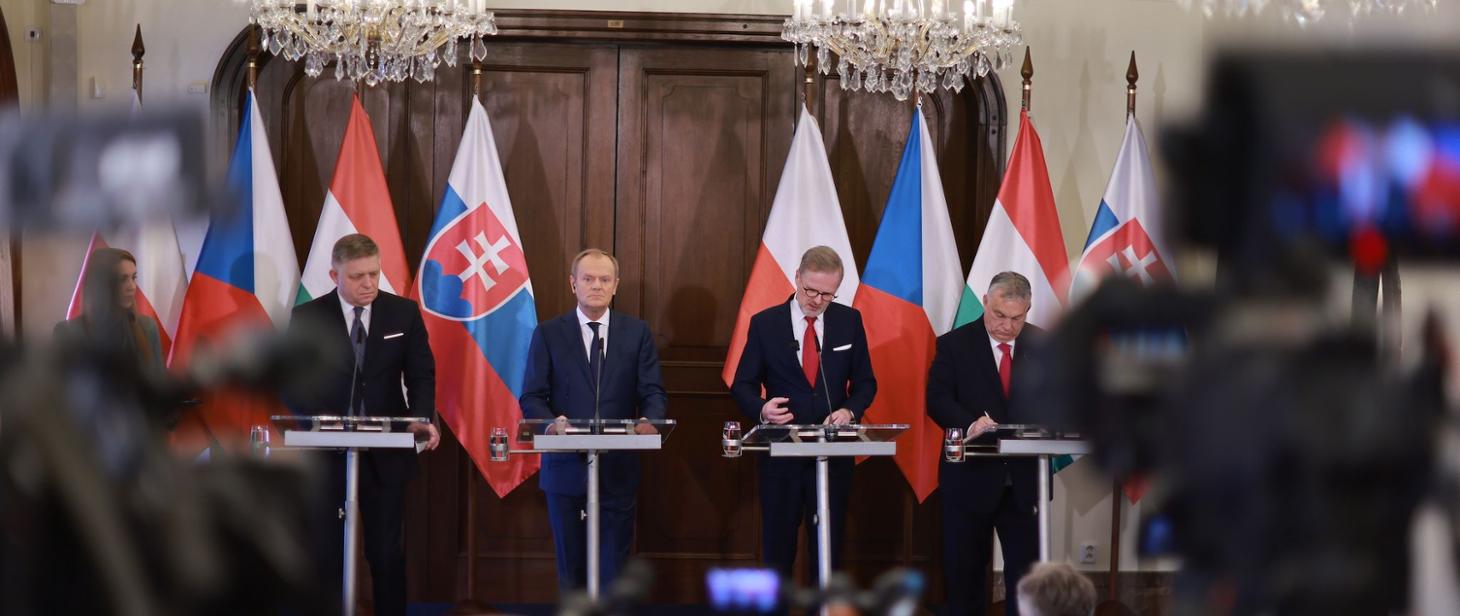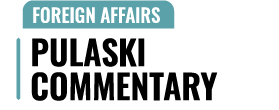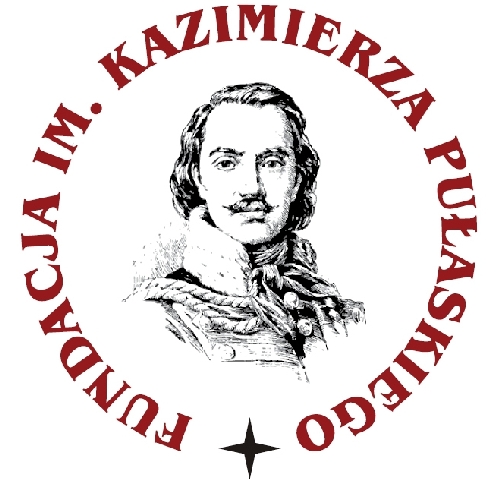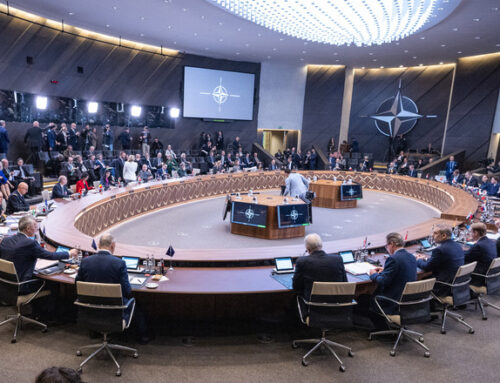1460×616
Autor foto: gov.pl



1460×616
Autor foto: gov.pl
CEE Weekly Update: Divisions Pervade V4, the German government, and Moldova
Autor: FKP
Opublikowano: 5 marca, 2024
Two Tables for Party of V4? Latest Visegrad Four Summit Reveals a V2 + V2 (+ Russia1) Alignment
On February 27, 2024, the prime ministers of Poland, Hungary, Czechia, and Slovakia gathered in Prague for a Visegrad Four summit. The talks were met with protests denouncing Slovakian Prime Minister Fico and Hungarian Prime Minister Orban’s Russia-aligned policies, bordering on bowing to Putin’s will.[1] The protests foreshadowed a reality that the summit then unveiled: a misalignment between the policy goals of two opposing V4 blocs in Ukraine’s war. The Visegrad Four managed to collectively agree on only three vague points. They agreed that Russia is breaking international laws; that Ukraine needs help, though its form was disputed; and that none of them will send their troops to Ukraine (a response to French President Emmanuel Macron’s recent remarks on Western boots on the ground in Ukraine). However, this is where agreements on the issue end.
One V2 bloc, Polish and Czech Prime Ministers Tusk and Fiala, agreed that Russia should not be rewarded for its aggression and Ukraine needs more military support. The other V2 bloc, Prime Ministers Fico and Orbán, called for an immediate cease-fire through peace talks, arguing that more military aid for Ukraine will only extend the conflict.[2] Fico claimed, ‘We can send weapons, money and equipment to Ukraine, but in two years, we’ll still be in the same place, only we’ll have tens of thousands more victims on each side.’[3] To this, Prime Minister Tusk directly rebutted. ‘Guess, Robert, where would the border between Russia and Ukraine be without our assistance…There is no place for neutrality,’ he said. Moreover, Poland’s prime minister underscored that bending to Putin’s would return the V4 countries to their shared history as Soviet satellite states. ‘If we accepted Moscow’s point of view, the one Putin is presenting, then neither Slovakia, the Czech Republic, Hungary, nor Poland would be independent states, and we would still be living under occupation,’ said Tusk. Prime Minister Fiala agreed, saying the only way to ensure peace in the region is to show strength to the war’s aggressor. Fico and Orbán’s assessment of the situation is, however, misaligned with most Western assessments and shows distorted understandings of Russia and Ukraine’s resolve to end the war militarily.[4]
Though there was contention over the right means to defend Ukraine, the parties did find some common ground. The four leaders agreed on the necessity for more nuclear energy development, they collectively disapproved of the EU’s ‘illegal migration’ policy, they expressed a distaste for EU restructuring into a more federal structure (with less veto power), and insisted that the Green Deal should not be pursued at a cost to EU farmer competitiveness.[5] Though they found some common ground, the security assessment of these countries, in its disjointed form, is a win for Russia. Moscow benefits when the West is unable to find shared responses to its aggression in Ukraine. Moreover, the fragmented Western response comes from opposing perceptions of how the war in Ukraine began. Fico refuses to admit that Russia’s attack was unprovoked while Orbán refuses to condemn Putin as its aggressor.[6]
Poland to Become First Country Operating the Integrated Battle Command System (IBCS) Outside the US
Warsaw’s $2.5 billion IBCS (Integrated Battle Command System) deal with Washington is the latest addition to its military spending surge, driven by Russia’s full-scale war on Ukraine. By observing the conflict, Poland has learned that air defence is a vital component of its own defence capabilities against Russia. It is worth noting that Putin’s wars have followed a pattern of aerial bombing campaigns targeting civilian and critical infrastructure since the Chechen wars.[7] Therefore, protecting Poland’s air space with IBCS integration into Poland’s air defence infrastructure is a proactive way of preparing the country against Russia’s modus operandi in aerial bombing.[8]
The deal signed last Thursday, 29 February, will make Poland the only country outside the US to operate an IBCS— a move that US ambassador Mark Brzezinski highlighted will now keep Poland’s skies safe. Moreover, the acquisition—expected to be integrated into the military between 2024 and 2031— will make Poland’s existing Narew and Wisła defence programmes ‘the most modern in the world,’ according to Defence Minister Władysław Kosiniak-Kamysz.[9] Poland is currently the highest spender (as a percent of GDP) on defence of all 31 NATO states. Since Russia’s 2014 invasion of Ukraine, Warsaw has raised its expenditure from 1.9 percent (in 2014) to 4 percent (in 2023).[10] This military spending and modernisation campaign was initiated by PiS (the Law and Justice Party) and continued by the new government. The new administration, led by Donald Tusk, has already signed a $5 billion air defence deal with the UK, purchased $1.2 billion of radar reconnaissance airships from the US, and will now acquire the US ICBS.[11]
Transnistria Seeks Russian Aid
Last Wednesday, 28 February, Transnistria asked Russia for protection “in the face of increased pressure.”[12] The call came after a rarely held special session of Transnistria’s Congress of Deputies— the first one since 2006 and seventh in Transnistria’s history. Though the Congress was secretive about the reason for its gathering, members cited economic pressure. However, experts argue these claims are made to serve President Putin’s interests in the war in Ukraine.[13]
After Russia’s 2022 full-scale invasion, Ukraine sealed off its border with Transnistria, cutting the region off from food and equipment deliveries previously transported through the Ukrainian port city of Odessa. The sealed border with Ukraine left Moldova as the only entry and exit point for the breakaway region. Although internationally, Transnistria is recognised as part of Moldova, the region had declared statehood and independence in 1992— a status that only two other breakaway regions, Abkhazia and South Ossetia, recognise.
Transnistria claimed that the special session of its Congress of Deputies was called because Moldova introduced new customs regulations, removing Transnistria’s tax exemptions.[14] Transnistria’s government used Moldova’s imposition of customs duties to claim that Chișinău is ‘destroying’ its economy and ‘violating human rights and freedoms’ in the region.[15] Analysts, however, believe that Transnistria’s call for Russian protection is aimed at destabilising Moldova’s pro-Western leaning government, which gained official EU candidate status in 2022.[16] A destabilised situation in this prospective EU member state would be a win for Moscow. Therefore, it is worth examining the situation with scepticism as similar claims were made by Russia’s proxies in Donetsk and Luhansk in eastern Ukraine before Moscow invaded Ukraine in 2022.[17]
The Long Tail of German Taurus Delivery Reluctance
The words of French President Emmanuel Macron that placing Western troops on the ground in Ukraine cannot be ‘ruled out’ resonated across the continent last week. Only a few leaders (for example, Lithuanian MFA Landsbergis) backed the idea, with the majority excluding such an option. In Germany, the words have provoked a major crisis. First, Chancellor Olaf Scholz explained his reluctance to send Ukraine Taurus missiles with an aversion to putting German soldiers in the war zone, suggesting that British and French soldiers are already there training Ukrainians on how to use long-range missiles. Disclosing this sensitive intel with the public undermined the trust of German allies in the office of the Chancellor, but the worst came a few days later when a discussion between senior military officials was leaked, showing the differing opinions within German Defence structures and their deep penetration or lack of protection.[18]
The entire situation increases pressure on Olaf Sholz to send the Taurus missiles. The ruling coalition remains divided on the matter, with Germany’s Minister of Foreign Affairs Annabelle Baerbock urging her government to reconsider the reluctance and send everything possible to Ukraine.[19] However, it remains only the chancellor’s decision, and he remained firm regarding his previous position. Although the increased pressure might eventually lead to Taurus being delivered, in the meantime, it is creating more advantages for Russia, dividing the West, spreading a lack of trust as it is trying to consolidate, and showing that Kyiv is believed in by the ruling party in Berlin.
Authors: Tomasz Obremski, Jessica Maksimov (ed.)
[1] Daniel Tilles, “Differences over Ukraine clear as Polish, Hungarian, Czech and Slovak PMs meet,” Notes from Poland, February 27, 2024, https://notesfrompoland.com/2024/02/27/differences-over-ukraine-clear-as-polish-hungarian-czech-and-slovak-pms-meet/.
[2] Rikard Jozwiak, “The Visegrad Group: When 2 + 2 Doesn’t Equal 4,” Radio Free Europe, February 27, 2024, https://www.rferl.org/a/visegrad-hungary-poland-czech-slovakia-disunity/32837670.html.
[3] Daniel Tilles, “Differences over Ukraine clear as Polish, Hungarian, Czech and Slovak PMs meet,” Notes from Poland, February 27, 2024, https://notesfrompoland.com/2024/02/27/differences-over-ukraine-clear-as-polish-hungarian-czech-and-slovak-pms-meet/.
[4] Casimir Pulaski Team, “CEE Weekly Update: Omnipresent Pessimism,” Casimir Pulaski Foundation, February 22, 2024, https://pulaski.pl/en/cee-weekly-update-omnipresent-pessimism-2/.
[5] Rikard Jozwiak, “The Visegrad Group: When 2 + 2 Doesn’t Equal 4,” Radio Free Europe, February 27, 2024, https://www.rferl.org/a/visegrad-hungary-poland-czech-slovakia-disunity/32837670.html.
[6] Nick Thorpe, “What has Hungary’s Orban got against Ukraine?” BBC, December 15, 2023, https://www.bbc.com/news/world-europe-67725570.
[7] “OSF and the McCain Institute Host Discussion on Applying WPS Lens to Russian Aggression in Ukraine and Syria,” Our Secure Future, June 28, 2023, https://oursecurefuture.org/our-secure-future/news/osf-and-mccain-institute-host-discussion-applying-wps-lens-russian.
[8] Back on September 26, 2023, a Ukrainian missile crossed into Polish air space striking a grain facility. A new air defence system can deter similar incidents from occurring within Poland’s territory and avoid sparking debates over invoking NATO Article 5 as a response. Alan Charlish, “Polish experts confirm missile that hit grain facility was Ukrainian – media,” Reuters, September 26, 2023, https://www.reuters.com/world/europe/polish-experts-confirm-missile-that-hit-grain-facility-was-ukrainian-media-2023-09-26/.
[9] Jaroslaw Adamowski, “Poland signs $2.5 billion deal for US air-defense software hub,” DefenseNews, February 29, 2024, https://www.defensenews.com/global/europe/2024/02/29/poland-signs-25-billion-deal-for-us-air-defense-software-hub/.
Agata Pyka, “Poland signs $2.5bn deal with US for air defence system,”Notes from Poland, March 1, 2024, https://notesfrompoland.com/2024/03/01/poland-signs-2-5bn-deal-with-us-for-air-defence-system/.
[10] Hanne Cokelaere, “NATO: Who are the biggest defence spenders in Europe?” POLITICO, February 13, 2024, https://www.politico.eu/article/russia-nato-spending-ukraine-war-donald-trump/; Alicja Ptak, “Poland to spend 4% of GDP on defence this year, highest current level in NATO,” Notes from Poland, January 31, 2024, https://notesfrompoland.com/2023/01/31/poland-to-spend-4-of-gdp-on-defence-this-year-highest-current-level-in-nato/.
[11] Agata Pyka, “Poland signs $2.5bn deal with US for air defence system,” Notes from Poland, March 1, 2024, https://notesfrompoland.com/2024/03/01/poland-signs-2-5bn-deal-with-us-for-air-defence-system/.
[12] “Moldova: Breakaway Transnistria asks Russia for 'protection,’” Deutsche Welle, February 28, 2024, https://www.dw.com/en/moldova-breakaway-transnistria-asks-russia-for-protection/a-68396033.
[13] Andrew Higgins, “A Breakaway Region of Moldova Asks Russia for Protection,” The New York Times, February 28, 2024, https://www.nytimes.com/2024/02/28/world/europe/moldova-russia-transnistria.html.
[14] “Moldova: Breakaway Transnistria asks Russia for 'protection,’” Deutsche Welle, February 28, 2024, https://www.dw.com/en/moldova-breakaway-transnistria-asks-russia-for-protection/a-68396033; Kamil Całus, “Moldova is increasing the pressure on Transnistria,” OSW, January 17, 2024, https://www.osw.waw.pl/en/publikacje/analyses/2024-01-17/moldova-increasing-pressure-transnistria.
[15] Ibid.
[16] Ibid.
[17] Ibid.
[18] Matthew Karnitschnig, “Putin’s masterful spy op leaves Scholz in the cold”, POLITICO, March 5th, 2024, https://www.politico.eu/article/vladimir-putin-olaf-scholz-russia-germany-taurus-missile-ukraine-war/
[19] Hans von der Burchard, “Baerbock urges German coalition to ‘intensively consider’ Taurus deliveries to Ukraine”, POLITICO, March 4th, 2024, https://www.politico.eu/article/germanys-baerbock-urges-to-intensively-consider-taurus-deliveries-to-ukraine/.






